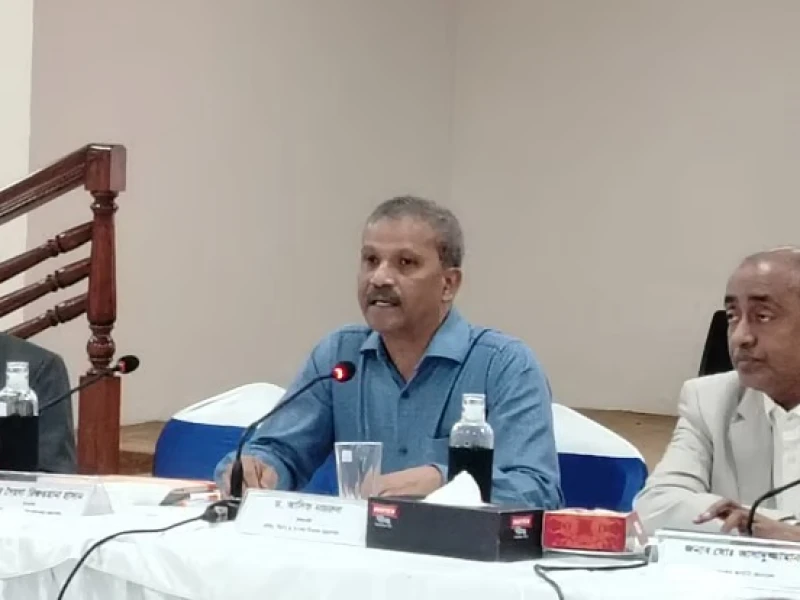As political parties failed to reach a consensus on implementing the July Charter, the interim government will now move forward with its own plan, Law Adviser Prof Asif Nazrul said on Tuesday.
Speaking to reporters at the Judicial Administration Training Institute, he said the government would reveal its course of action within the next two to three days, noting that all efforts were made to accommodate the expectations of political parties in the national interest.
Following the July uprising, the interim government formed a National Consensus Commission to propose reforms in constitutional and state governance matters. After discussions with political parties, the commission submitted its recommendations to the government on October 27. However, disputes over issues such as the timing of a referendum prevented parties including BNP and Jamaat-e-Islami from reaching an agreement within the one-week deadline.
Nazrul said the government had hoped the parties would present a unified directive but had also kept its own preparations ready. He reiterated that the administration was not merely waiting for political consensus and had already taken steps toward implementing the charter.
Addressing the event on the draft Legal Aid (Second Amendment) Ordinance 2025, organised by the National Legal Aid Services Organisation, the law adviser criticised what he described as excessive blame and misinformation surrounding the reform process.
He said much of the public debate had become fixated on constitutional amendments, whereas meaningful reform also required changes in political culture and mindset.
A constitution alone cannot bring transformation,” he observed, stressing the need for broader institutional and behavioural reform.
Nazrul claimed that around 70–80 percent of the proposals under the Judicial Reform Commission had already been implemented, though such progress often went unnoticed.
He also acknowledged facing bureaucratic resistance while pursuing reform initiatives, citing the example of the draft Police Reform Commission Act, which proposed a merit-based process for appointing the Inspector General of Police—a provision that, he said, drew strong opposition from the bureaucracy.


 Prev Post :
Prev Post :
